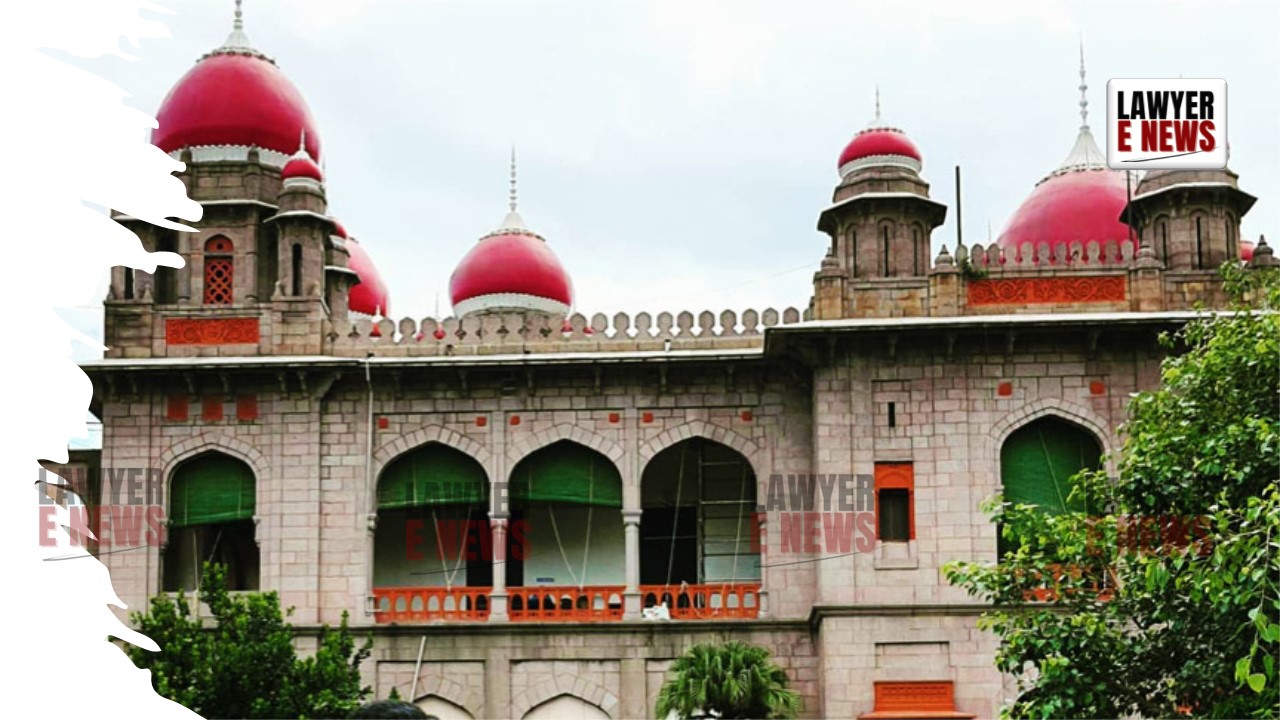-
by Admin
18 February 2026 2:24 PM



“Plaintiffs Must Succeed on the Strength of Their Own Case — Courts Cannot Decree Specific Performance on Suspected and Inconsistent Evidence” - In a decisive ruling Telangana High Court set aside the trial court’s decree granting specific performance of a property sale agreement, holding that the plaintiffs failed to prove a valid contract or readiness and willingness to perform.
Justice P. Sree Sudha firmly ruled: “Specific performance cannot be decreed on a document shrouded with suspicion — the plaintiffs failed to discharge the burden of proof resting on them.”
Laying emphasis on foundational legal principles, the Court held that fabricated documents, lack of demand notices, and unexplained delays are fatal to a suit for specific performance.
The Case Unravels: A Sale Deed or a Cloaked Loan Arrangement?
The dispute centered around a residential property at Shalivahana Nagar, Hyderabad. The plaintiffs claimed to have entered into an oral agreement of sale on 20-02-1998, allegedly paying ₹25 lakh in cash, followed by a written agreement dated 28-02-1998 to purchase the property for ₹30 lakh.
However, the defendant disputed this claim, alleging that: “The signatures were obtained by coercion during times of financial distress — there was never an intention to sell the property.”
Analyzing the evidence, the High Court found the defendant’s stand more probable, pointing out: “None of the plaintiffs Nos.1 to 4 entered the witness box — only plaintiff No.5, armed with a later Power of Attorney, deposed, and he had no personal knowledge of the initial transactions.”
The Court stressed that when crucial parties avoid examination, an adverse inference must be drawn: “The plaintiffs cannot rely on silence to prove an agreement allegedly involving massive cash transactions without credible supporting testimony.”
"Demand for Performance Is Not an Optional Ritual": Court Faults Plaintiffs’ Failure to Issue Proper Notices
Turning to procedural lapses, Justice Sudha castigated the plaintiffs for not serving a registered demand notice, observing: “Issuance of a registered demand notice is mandatory under Forms 47 and 48 of the CPC — it shows readiness and willingness to perform the contract.”
Instead, the Court found that: “Only plaintiff No.5 issued notices in his personal capacity — the other plaintiffs, on whose behalf specific performance was claimed, remained silent.”
Thus, the very suit was held to be non-maintainable.
Suit Barred by Limitation: “Fixed Dates Cannot Be Stretched by Post Hoc Extensions”
The Court held that under Article 54 of the Limitation Act, the time to seek specific performance started from the date fixed in the agreement, namely 28-02-1999.
Justice Sudha ruled: “When a date is fixed for performance, the limitation clock starts ticking from that day — later extensions, fabricated MoUs, or informal correspondences cannot extend statutory timelines.”
Since the suit was filed only on 09-01-2003, the Court held: “The suit is hopelessly barred by limitation and deserved dismissal on this ground alone.”
Court Unmasks Fabrication: “Unilateral Extensions and Forged Possession Cannot Found a Decree”
Highlighting contradictions in the plaintiffs' case, Justice Sree Sudha found that:
• Plaintiffs relied on one-sided documents allegedly extending time.
• There was no acknowledgment from the defendant agreeing to these extensions.
• Possession was allegedly taken without formal conveyance or documentation.
The Court observed: “Possession gained on the basis of fabricated documents and backdated endorsements cannot be protected under the equitable jurisdiction of the Court.”
“Specific performance being an equitable remedy, parties must approach the Court with clean hands — here, the plaintiffs miserably failed to establish their case.”
Bringing the litigation to an end, Justice P. Sree Sudha declared: “The plaintiffs’ case is riddled with inconsistencies, lack of evidence, procedural non-compliance, and barred by limitation — the decree for specific performance is legally unsustainable.”
The High Court thus allowed the appeals, set aside the trial court’s judgment, and dismissed the plaintiffs' suit, reminding litigants that specific performance is not a right, but a remedy rooted in equity, fairness, and lawful proof.
Date of Decision: April 22, 2025
